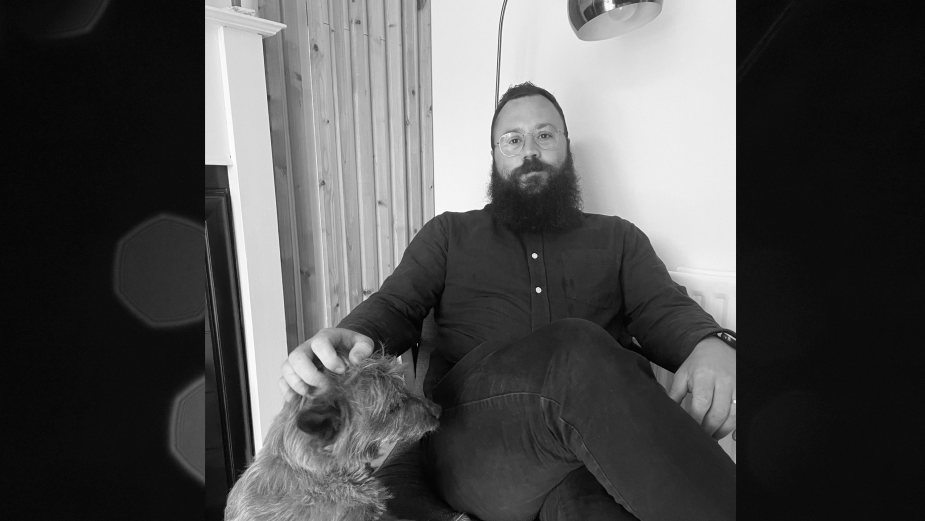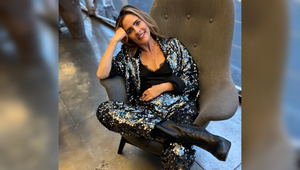
Thinking in Sound: Liam Yelen on His Passion for the Art of Sound in Commercials

Liam is an international award-winning dubbing mixer and editor, with over ten years’ experience in the audio post – production world. His broad spectrum of talents ranges from working with acclaimed directors such as Jim Sheridan and Terrence Malick, right down to adding footsteps to the feet of tiny cartoon bunnies.
Liam has also worked on many global, international and domestic brands such as Lidl, VW, SuperValu and Smyth’s, to name a few. He relishes all forms of commercial work: “It’s the truly exciting world of commercial advertising along with its testing nature and it being the only form of media that allows me to use all my audio skills that I’ve built up over the years – from VO records, dialogue editing, sound design, cinema mixes, ADR and full mixing on a single job”.
LBB> When you’re working on a new brief or project, what’s your typical starting point? How do you break it down and how do you like to generate your ideas or response?
Liam> For myself, there isn’t one ‘typical’ starting point but generally I start by sitting with the pictures or brief for a moment and just let myself find the inspiration within it.
No matter what the job is, there is always something that will grab me and start me down the path. Depending on what that inspiration is, it will then outline how I respond to the piece.
LBB> Music and sound are in some ways the most collaborative and interactive forms of creativity - what are your thoughts on this? Do you prefer to work solo or with a gang - and what are some of your most memorable professional collaborations?
Liam> Being a commercial post engineer means that there has always been moments of collaboration and long moments of being left to your own devices to mix etc.
My performance has always been to do work with as many people present as possible.
The energy and exchange of ideas are to me the most valuable and enjoyable part of the work. Along with this, I also feel that sound and music can be one of the most subjective parts of the post production process. This means that the more participation that is played by all the parties involved will lead to an end product that will please everyone, and thus connect more widely to the public itself.
LBB> This has been, professionally what I have found most difficult working through the COVID pandemic. I have always loved having a room full of people, I feel the end product is better and also its more of a good time getting there. Remote working has been amazing for keeping people safe, but I miss everyone.
Liam> I had a great moment working on ADR with Jim Sheridan. There was a line that he didn't think needed to be re-recorded and asked me to recite back what I understood the line to be. I got it wrong (thus proving that it needed re-recording) and he proceeded to ask me for every line of dialogue for the rest of the film to see if I understood what they were saying.
I love Jim Sheridan’s work so much, it was a truly amazing experience to be slagged by the man.
LBB> What’s the most satisfying part of your job and why?
Liam> The most satisfying part of my job is having a happy client. It’s great hearing my work, but there is nothing like a room full of people that leave the studio with a soundtrack that rocks, and with a smile on their face after having a good time. It goes beyond the work itself in these cases. We have all enjoyed ourselves, and that’s all we can ask for, being happy with and in our work.
LBB> As the advertising industry changes, how do you think the role of music and sound is changing with it?
Liam> Sound and music is changing along with the entire industry as a necessity due to COVID. It’s very interesting to hear the quality of the VO artists home studios and doing sessions remotely as the standard. Along with this, I feel that we are beginning to understand that the online sphere deserves that same love and attention as a TV commercial.
LBB> Who are your musical or audio heroes and why?
Liam> I find it hard to consider anyone I don't know personally a hero but there are so many whose work I love, so it’s hard to choose just a few. There are many audio engineers in the Irish post production space that I could choose but they are my direct competitors so I might leave them out!
LBB> And when it comes to your particular field, whether sound design or composing, are there any particular ideas or pioneers that you go back to frequently or who really influence your thinking about the work you do?
Liam> I will always go back to David Lynch and Alan Splet’s work on ‘Eraser Head’. It’s so out there and can solicit such strong feelings in me that it really pushed me to strive for an emotional response in my work when applicable. Also, there is obviously Walter Murch! There has been no one that has made me think more about the use of sound as a method of storytelling than his work. The opening of ‘Apocalypse Now’ (Insert chef’s kiss SFX)!
LBB> When you’re working on something that isn’t directly sound design or music (let’s say going through client briefs or answering emails) - are you the sort of person who needs music and noise in the background or is that completely distracting to you? What are your thoughts on ‘background’ sound and music as you work?
Liam> Outside of my direct work, I will always have something on in the background. I’m partial to the trashiest TV available, so this will play during general household work. If I’m doing something in down time at work, emails etc, headphones will go on and I’ll listen to music. I’m just the type of guy that it doesn’t distract. My wife on the other hand has to turn down the radio when I’m parking the car!
LBB> I guess the quality of the listening experience and the context that audiences listen to music/sound in has changed over the years. There’s the switch from analogue to digital and now we seem to be divided between bad-ass surround-sound immersive experiences and on-the-go, low quality sound (often the audio is competing with a million other distractions) - how does that factor into how you approach your work?
Liam> Personally, I feel you need to take this job by job. When its TV work it better be ‘bad ass’ but really any TV ad that’s also transferring to the online space should have its own mix. But this online ‘on-the-go’ mix should not translate to ‘low quality’, but different sound. Of course, we are competing with a million other distractions, but there are a million distractions at our fingertips whether we’re on the bus or in the cinema nowadays. It’s about creating a commercial that can compete with all these distractions and a sound scape that helps this ad get the attention.
LBB> On a typical day, what does your ‘listening diet’ look like?
Liam> Well as it happens, at this moment I’m listening to ‘Western Island’ by Archie Fisher.
I’m a big fan of British folk music (mostly old English and Scottish) but let’s take a Monday as an example.
I’ll be woken by the dulcet tones of Marty Whelan, as my wife will have Lyric FM playing in every room of the house. On my cycle to work I’ll throw on the new episode of ‘This American Life’ produced by Chicago Public Radio and PRX (unbelievable stuff, if you aren’t on it already, then get on it. It’s the first podcast to also win a Pulitzer Prize). Then I work and will generally jump around to different playlists between jobs. The cycle home will be music again, whatever I’ve been having on heavy rotation for that week. Then the evening will be a couple of TV shows and before going to sleep its back to Lyric FM.
LBB> Do you have a collection of music/sounds and what shape does it take (are you a vinyl nerd, do you have hard drives full of random bird sounds, are you a hyper-organised spotify-er…)?
Liam> I have a varied collection of many different music and sounds. At work they are all catalogued immaculately. This is NOT the case at home. I can find my way around my personal SFX library easily, but I defy anyone else to do the same. I have a medium sized vinyl collection that mostly consists of 60s and 70s folk and rock, and a vast CD collection from my childhood (a lot of hard rock and metal). I also have 27 Spotify playlists of different genres and tone setters.
LBB> Outside of the music and sound world, what sort of art or topics really excite you and do you ever relate that back to music (e.g. history buffs who love music that can help you travel through time, gamers who love interactive sound design… I mean it really could be anything!!)
Liam> I’m excited by many forms of art. I’m an avid reader, a casual gamer and I love fine/contemporary art. I’m also a huge film buff (my education being in film theory).
I feel that all of these can be related back into the work in a sense. People all over the world are creating art of all mediums that’s so astonishing that it just makes you want to do better and be better. To put out the best work that you can do within the perimeters you have.
LBB> Let’s talk travel! It’s often cited as one of the most creatively inspiring things you can do - I’d love to know what are the most exciting or inspiring experiences you’ve had when it comes to sound and music on your travels?
Liam> What’s that? It’s been so long I’ve forgotten what that is! Just messing. One event that will always stay with me is being in Spain as a kid and seeing a flamenco guitarist play unbelievably, I mean absolutely shredding it. But he would make the odd mistake and you could see him flinch at these moments, but he was still killing it. If anything, these unintended moments added to the magic of the moment for me. That’s not to say that I want to make mistakes in my work, but it is a good demonstration that there are accidental moments in sound and music where true magic is hidden.
LBB> As we age, our ears change physically and our tastes evolve too, and life changes mean we don’t get to engage in our passions in the same intensity as in our youth - how has your relationship with sound and music changed over the years?
Liam> The biggest change has probably been in my passion for the art of sound in commercials. I fell into the industry. I’ve always loved music and film and would have given anything to work in the film industry but as I have progressed through my career, I have come to terms with the fact that film is my love as an observer, whereas commercials are what I love as a participant.













